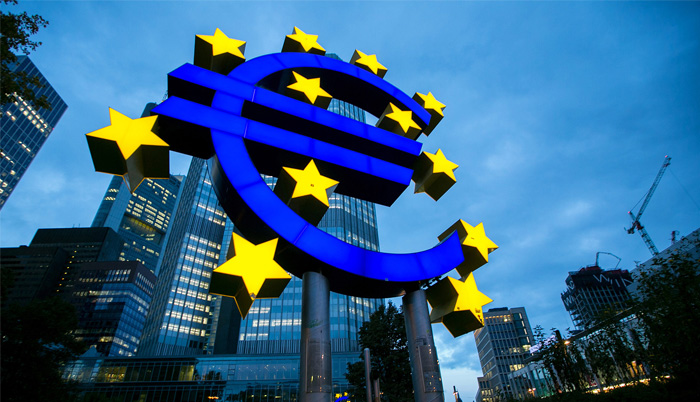![]() Home > World Business
Home > World Business
Negative Rates Are Failing To Halt Savings Obsession In Europe

Photographer: Krisztian Bocsi/Bloomberg
![]() November 21st, 2016 | 08:40 AM |
November 21st, 2016 | 08:40 AM | ![]() 702 views
702 views
Europe
After years of turbo-driven central bank stimulus, most Europeans still want to leave their spare cash in savings accounts, even if those accounts pay zero interest.
That’s the finding of a survey by Europe’s biggest debt collector, Stockholm-based Intrum Justitia AB.
“After the financial crisis, people have felt a need -- even if they have small means -- to create some kind of security,” Chief Executive Officer Mikael Ericson said in an interview in Stockholm on Nov. 16. “It can’t be that people save in a bank account because of the fantastic returns, so it must be about a sense of security, having money in the bank.”
Some 69 percent of Europeans put their savings into bank accounts, according to Intrum Justitia’s European Consumer Payment Report. The survey is based on feedback gathered in September and covers about 21,000 people in 21 countries.
The survey also shows that 26 percent of Europeans prefer keeping their surplus funds in cash, while 16 percent hold stocks. Only 14 percent turn to investment funds, 8 percent invest in real estate and 8 percent in bonds. In Denmark and Sweden, where central bank benchmark rates are negative, almost 80 percent of people put their surplus cash in bank accounts. In France, the U.K. and the Netherlands, the figure is above 80 percent.
But worryingly, Intrum Justitia’s survey shows that even after years of extreme monetary support, many Europeans are wondering whether they’d be better off if they lived somewhere else.
Looking for Escape
Across Europe, 24 percent of people said they want to move to escape their country’s financial plight. About 27 percent of respondents said they sometimes can’t pay their debts. Of those, 58 percent feel they don’t have enough money “for a dignified existence.”
In Britain, 29 percent of people aged 18 to 24 said they’d consider leaving the country, possibly in response to the U.K.’s decision to quit the European Union, Intrum Justitia said. A year earlier, only 13 percent of young Britons said they wanted to leave.
The survey also revealed how financially fragile many Europeans continue to be almost half a decade after the region’s debt crisis. About 44 percent of all Europeans were unable to pay at least one bill on time during the last 12 months, mainly because of a lack of money, the survey found. Greece was worst, with 76 percent of households failing to pay on time.
The report comes as central banks run out of tools to provide further stimulus and after years of austerity policies in Europe produced questionable results. Now, with U.S. President-elect Donald Trump promising an investment boom driven by fiscal stimulus, the outlook for interest rates is unclear. An inflationary spending cycle would drive rates higher, but an economic downturn triggered by an international trade war might have the opposite effect.
Asked whether households would be wise to take on a bit more risk in an effort to get higher returns, Ericson struck a cautious note.
“Personally, I think you should be conservative with your savings and ensure that you always get your capital back,” he said. “The basic savings should be placed so that you don’t risk your capital, and in today’s low-rate environment, you shouldn’t be too worried if you don’t have any high interest rate on your account as such.”
Source:
courtesy of BLOOMBERG
by Niklas Magnusson and Hanna Hoikkala
If you have any stories or news that you would like to share with the global online community, please feel free to share it with us by contacting us directly at [email protected]